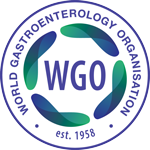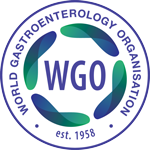Eradication of Helicobacter pylori does not increase risk of esophageal adenocarcinoma
Review by Prof. Eamonn Quigley (USA)
Study Summary
The incidence of esophageal adenocarcinoma (EAC) has risen dramatically in western nations in recent years and its occurrence has been strongly linked to gastroesophageal reflux disease (GERD) and Barrett’s esophagus, in particular. Given that Helicobacter pylori (Hp) infection has been associated with protection against EAC through the impact of chronic gastritis on gastric acid secretion it has long been feared that eradication of Hp with healing of gastritis and restoration of acid secretion might increase the incidence of EAC. This large study involving the entire adult populations of the Nordic countries will allay this fear by failing to identify any increase in incidence of EAC following eradication of EAC. Featuring over 650,000 participants and with a median follow up of almost 8 years and controlling for many confounding variables, these authors noted a slightly lower incidence of EAC among Hp-eradicated subjects compared to the general population. Hp eradication had no impact on the incidence of squamous carcinoma of the esophagus. The risk factors associated with an increased risk for EAC were GERD and proton pump inhibitor use.
Commentary
This is a truly impressive study from a group with a real pedigree in the epidemiology of GERD, EAC and Barrett’s esophagus. What is most impressive is their ability to extract data on every member of the population from each of the 5 Nordic countries, accurately track prescriptions for Hp eradication regimes and provide a definitive pathological diagnosis for their endpoint – EAC. With such large numbers of cases and controls they were also able to explore the impact of various factors and deal with potential confounders. It is important to note that this study was performed among populations where the prevalence of Hp infection is lower and that of GERD higher than in developing nations. Several hypotheses were advanced to explain the findings – such as the adoption of a healthier lifestyle following a diagnosis of Hp or an incomplete resolution of gastritis, but the delineation of underlying mechanisms must await further study.
Citation
Wiklund AK, Santoni G, Yan J, Radkiewicz C, Xie S, Birgisson H, Ness-Jensen E, von Euler-Chelpin M, Kauppila JH, Lagergren J. Risk of Esophageal Adenocarcinoma After Helicobacter pylori Eradication Treatment in a Population-Based Multinational Cohort Study. Gastroenterology. 2024;167:485-492.
View past News You Can Use commentaries

